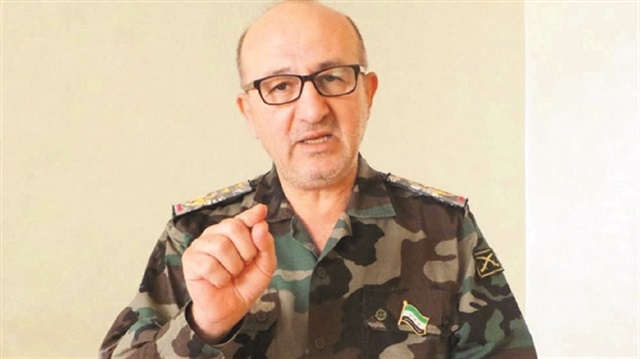
Civilians in several southern Turkish cities are within striking distance of the chemically-equipped missiles that will be launched by PKK/PYD terrorists
Millions of civilians in Turkey’s border regions are under threat after the Syrian offshoot of the Kurdistan Workers’ Party (PKK), the Democratic Union Party (PYD), has come under possession of chemical weapons provided by the Assad regime, according to a defected Syrian General.
Speaking exclusively to Yeni Şafak, former Syrian Brig. Gen. Zaher al-Sakat and once the Assad regime’s chemical weapons chief before defecting and joining the ranks of the Free Syrian Army (FSA), stated that the regime had provided PKK terrorists with weaponized Mustard gas.
PKK/PYD terrorists, who control a large stretch of land across the border from Turkey, are in procession of 100 missiles equipped with chemical agents, which threatens six millions civilians in Turkey, as the terrorists relocate to dozens of positions adjacent to the border.
Civilians in the Turkish cities of Kilis, İslahiye, Krıkhan, Akçakale, Karkamış, Suruç and Elbeyli, among others, are within striking distance of the chemically-equipped missiles that will be launched by PKK/PYD terrorists.
This threat alone may prompt the Turkish Armed Forces (TAF) to launch a cross-border operation targeting PKK terrorists positions in Afrin, Manbij, Ayn al-Arab, Tal Abyad and all other PKK-occupied border regions.
Following their defeat in Iraq, the Brazani-PKK-U.S.-Israel alliance gathered the leaders of the terror organizations in Syria’s Hasakah, and informed them of their decision to make 2018 the year when a large-scale war will be launched against Turkey, and ordered everyone to prepare accordingly.
Once Daesh is defeated, U.S.-backed terror leaders will wage a new war against Turkey that will last at least five years, using weapons provided by the U.S. to PKK/PYD terrorists.
Among the decision made during the Hasakah meeting was a wide-scale change in administrative ranks, as the terror organization transforms itself from a guerilla militia to a regular army.
In the case of an attack by Turkey, this shift would enable PKK terrorists to control and move freely across the border stretching from Qandil in Iraq, all the way to Syria’s Qamishli, as terror elements will be able to hold and carry out missions in the region.
Hello, the comments you share on our site are a valuable resource for other users. Please respect other users and different opinions. Do not use rude, offensive, derogatory, or discriminatory language.
The floor is all yours.









